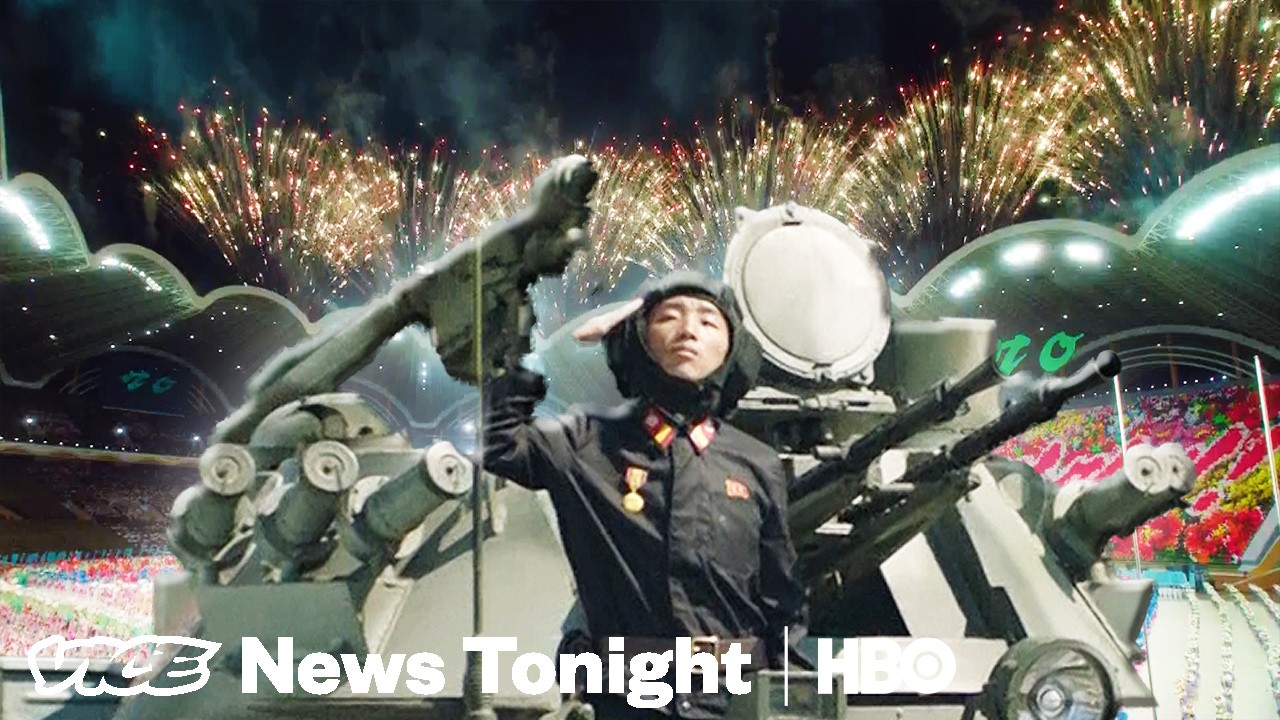Getty Images
Donald Trump said Tuesday that had he not been elected president, the United States would “be in a major war with North Korea” right now.The claim, made during the State of the Union address at the Capitol, was followed by the announcement a second summit with North Korean dictator Kim Jong Un to be held in Vietnam on Feb. 27-28.The suggestion that war was only averted by Trump’s “bold new diplomacy” was greeted by laughter in the chamber, and outrage online as commentators reminded the president that it was his “little rocket man” comments in 2017 that heightened tensions on the Korean Peninsula.Lauding his own statecraft, Trump pointed to the return of U.S. hostages, the suspension of nuclear testing, and no North Korean missile launches for more than a year.But seven months on from the historic first meeting between the two leaders in Singapore on June 12 — after which Trump boldly stated: “there is no longer a nuclear threat from North Korea” — experts say little has really changed."There were extremely bad signs in Kim's New Year’s Day address, where he emphasized de-coupling South Korea from the U.S. position, and where he emphasized North Korea as a 'responsible' nuclear weapons possessor,” John Hemmings, Asia Director at the Henry Jackson Society, a British foreign policy think tank, told VICE News.“This indicates a regime that is highly interested in keeping its weapons system, and undermining any return to the maximum pressure policy, should talks fail,” he added.READ: North Korea is making sure its nukes survive if the U.S. strikesDan Coats, Trump’s own director of national intelligence, said last week that “North Korea is unlikely to give up all of its nuclear weapons and production capabilities.”And hours before Trump’s address, a UN report revealed that Pyongyang is taking measures to ensure its nuclear missiles cannot be taken out by U.S. military strikes.U.S. Special Representative Stephen Biegun, who arrived in Pyongyang Wednesday to hammer out details for the summit with his North Korean counterpart, hinted in a speech in Standford last week that a declaration to end the 70 year-old truce on the Peninsula could be announced at the summit.These include Kim’s demand that U.S. troops leave South Korea, as well as a removal of the U.S. nuclear threat in the region.On the part of the U.S., there remains scant indication that Washington is ready to lift the crippling economic sanctions imposed on the regime without serious moves towards denuclearization — despite the breadcrumbs thrown out by Biegun.“North Korea's game has been all about the optics, the visuals, of gaining legitimacy from its negotiations with the South, while raising the bar for the U.S. in terms of achieving denuclearization,” Hemmings said. “The call for a peace regime in the wake of Singapore was a major red flag, as it showed that old canard of asking for the removal of U.S. troops and the U.S. nuclear umbrella in exchange for denuclearization.” Cover Image: President Donald Trump gestures to House Democrats in the House Chamber during his State of the Union address on Tuesday, February 5, 2019. (Tom Williams/CQ Roll Call)
Cover Image: President Donald Trump gestures to House Democrats in the House Chamber during his State of the Union address on Tuesday, February 5, 2019. (Tom Williams/CQ Roll Call)
Advertisement
However, there are some signs that Washington has softened its North Korea strategy in recent months, a move that could lead to a more concrete outcome from the summit in Vietnam.
Advertisement
“I am absolutely convinced, and more importantly, the president of the United States is convinced that it’s time to move past 70 years of war and hostility on the Korean Peninsula. There is no reason for this conflict to persist any longer,” Biegun said.The diplomat added that the U.S. may also be willing to relax some sanctions before Pyongyang achieves complete and verified denuclearization, and to defer a complete declaration of North Korea’s nuclear assets.“In parallel, we’re willing to look at a lot of other things that we can do together that also build the confidence and reduce the sense of risk or threat that would potentially drive a country to want to sustain that kind of capacity,” Biegun said.The White House’s shifting position appears to stem from a pledge made by Kim in October to Secretary of State Mike Pompeo, that North Korea would dismantle and destroy its plutonium and uranium enrichment facilities — the first time the regime has ever agreed to such a move.However, major obstacles remain in the way of a categorical declaration on denuclearization being announced in Vietnam.
Advertisement

